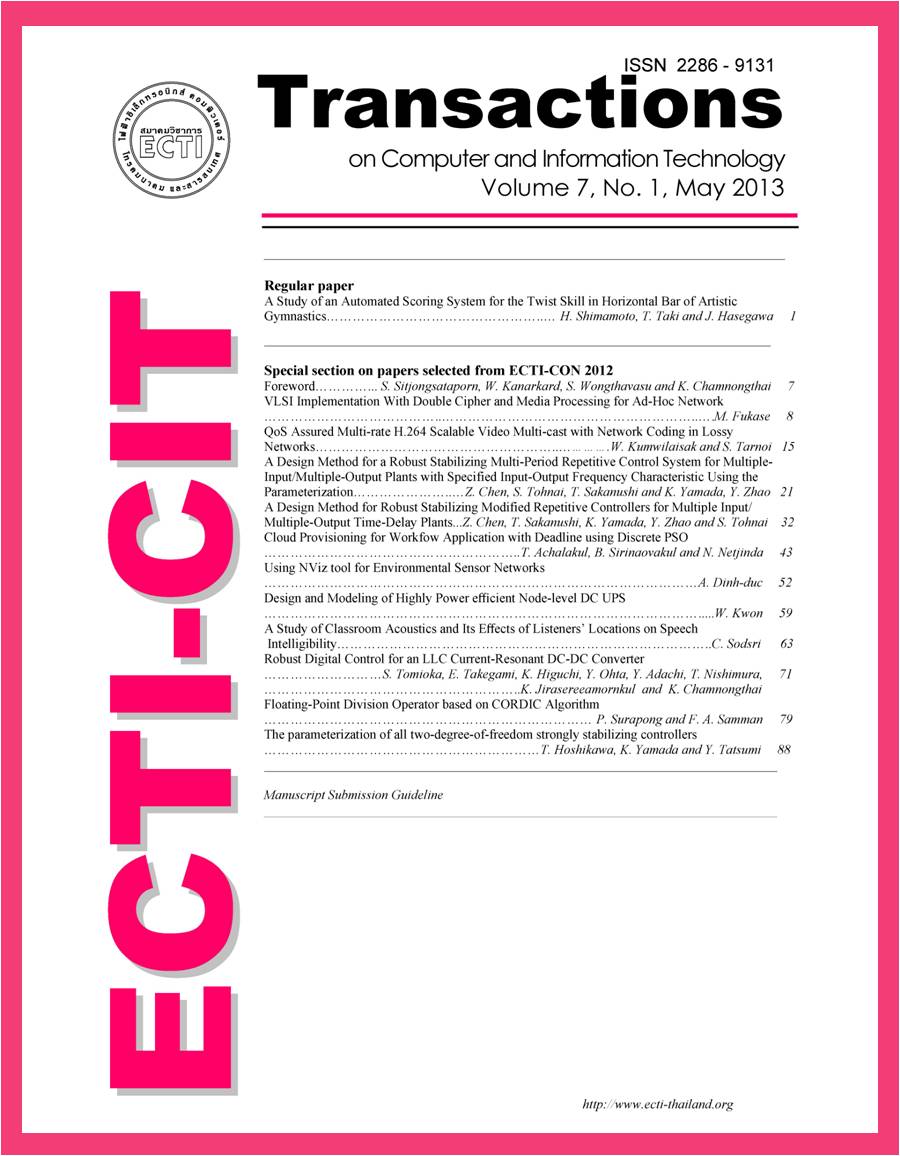A Study of Classroom Acoustics and Its Effects of Listeners’ Locations on Speech Intelligibility
Main Article Content
Abstract
Attending a class and listening to a lecture given by an instructor is a common process in Thailand education. Ability of learning is affected by the ability of hearing the instructors’ speech. Acoustical environments of the classroom, hence, can influence speech intelligibility. In this research, acoustical parameters and listeners’ locations in classrooms and their effects on the speech intelligibility were studied. By using an assumption of linear systems of the classrooms, the room reverberation, background noise, and other classroom acoustical factors can be implicated as impulse responses of the system. Maximum length sequence was used to identify the impulse responses at listeners’ locations in the classrooms. A clean speech, recorded in a semi-anechoic room, was convoluted with a series of the measured classrooms’ impulse responses to yield a set of simulated reverberant speeches that the listener at each location in the classes would have heard. A number of volunteers were invited to test an ability of understanding the speech. The experimental results showed that the reverberation and background noise at listeners’ locations severely affected the speech intelligibility. A classroom, that seemed to have a good averaged reverberation time, did not always yielded good speech clarity for all the locations in the class. In fact, for the classroom used in the study, the rear section of the class was poor for intelligibility and the back corner closed to a noise source was the worse location for speech hearing.


